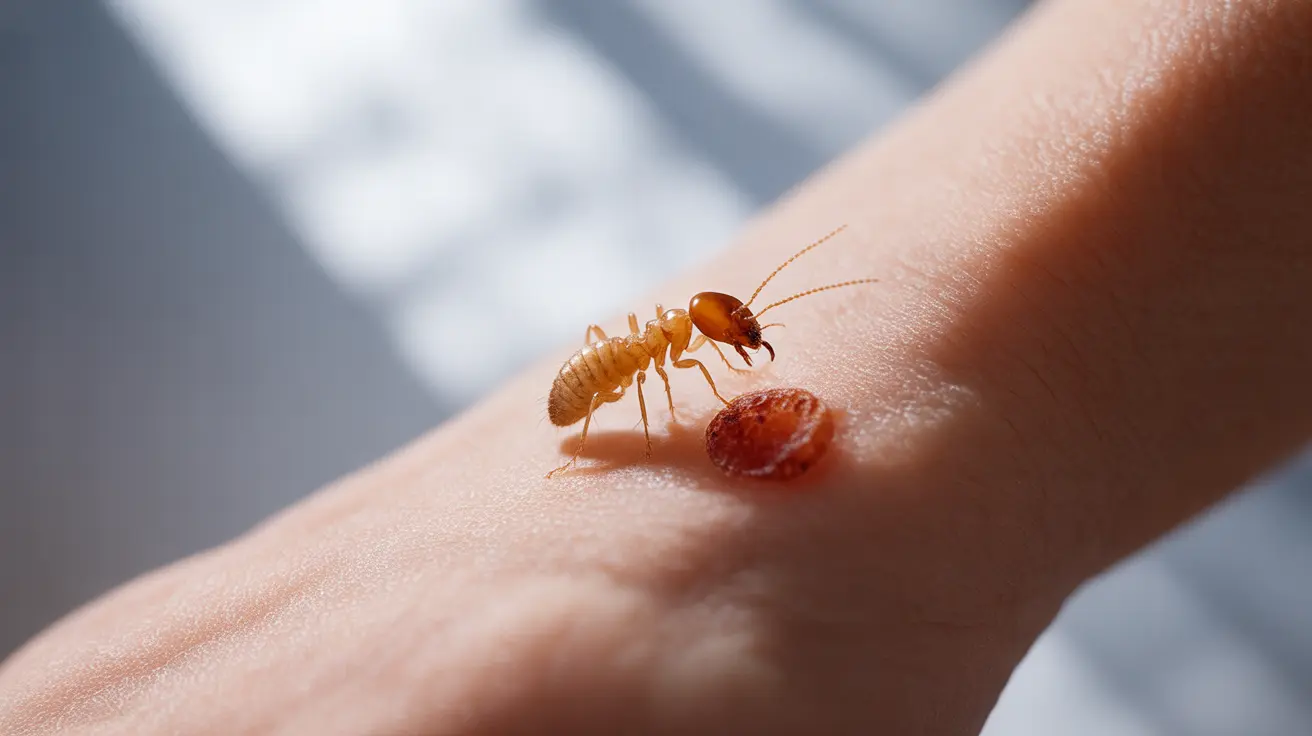While termites are primarily known for damaging wooden structures, many people wonder about their potential to bite humans. Understanding termite bites, their symptoms, and proper treatment methods is essential for anyone who may encounter these insects. This comprehensive guide will help you identify, treat, and know when to seek medical attention for termite bites.
Understanding Termite Bites and Their Occurrence
Termites rarely bite humans, as they primarily feed on wood and cellulose materials. However, soldier termites may bite when defending their colony or if directly handled. These bites are generally not dangerous but can cause mild discomfort and irritation.
Identifying Termite Bite Symptoms
When termites do bite, the symptoms are typically mild and localized to the bite area. Common signs include:
- Small, red marks on the skin
- Mild swelling around the bite site
- Light itching or irritation
- Temporary skin redness
- Slight tenderness
Distinguishing Termite Bites from Other Insect Bites
Termite bites can be distinguished from other insect bites by their characteristics:
- Usually appear as single marks rather than clusters
- Cause minimal swelling compared to ant or mosquito bites
- Typically don't leave lasting welts
- Generally produce mild symptoms that resolve quickly
Treatment Options for Termite Bites
Most termite bites can be effectively treated at home using simple remedies and over-the-counter products:
Immediate Care Steps
- Clean the bite area with soap and water
- Apply a cold compress to reduce swelling
- Use calamine lotion for itch relief
- Consider over-the-counter antihistamines if needed
Ongoing Care
Monitor the bite site for signs of infection or unusual reactions. Keep the area clean and avoid scratching to prevent secondary complications.
When to Seek Medical Attention
While most termite bites are harmless, certain situations warrant medical evaluation:
- Severe swelling or spreading redness
- Signs of infection (increased warmth, pus, or fever)
- Persistent pain or itching that worsens
- Development of allergic reactions
- Multiple bites causing significant discomfort
Prevention and Safety Measures
To minimize the risk of termite bites, consider these preventive steps:
- Avoid direct contact with termites during infestations
- Wear protective clothing when examining damaged wood
- Address termite infestations promptly through professional pest control
- Maintain proper home maintenance to prevent termite colonies
Frequently Asked Questions
How common are termite bites on humans and do termites actually bite people? Termite bites on humans are relatively rare. While termites can bite, they primarily focus on consuming wood and typically only bite humans when directly handled or threatened, particularly soldier termites defending their colony.
What are the typical symptoms of a termite bite and how can I tell it apart from other insect bites? Termite bites typically present as small, red marks with mild swelling and itching. They usually appear as single marks rather than clusters and cause less severe reactions compared to other insect bites like mosquitoes or ants.
How should I treat a termite bite at home to reduce itching and swelling? Clean the bite area with soap and water, apply a cold compress to reduce swelling, and use calamine lotion or over-the-counter antihistamines for itch relief. Keep the area clean and avoid scratching.
When should I see a doctor for a suspected termite bite or if the bite gets worse? Seek medical attention if you experience severe swelling, spreading redness, signs of infection, persistent pain or itching that worsens, or develop allergic reactions.
Can termite bites cause infections or serious allergic reactions in humans? While rare, termite bites can potentially lead to infections if the bite area becomes contaminated or is excessively scratched. Serious allergic reactions are uncommon but possible, particularly in sensitive individuals.




